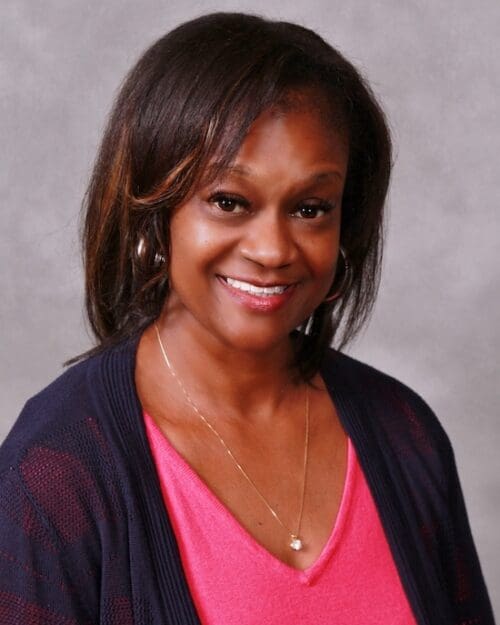Lionhearted Leaders: LaVada Taylor

In a time of racial justice reckoning: LaVada Taylor challenges her students to think critically
LaVada Taylor, associate professor of Education in the College of Humanities, Education, and Social Sciences, says even though the COVID-19 pandemic has been undoubtedly tragic, there is good that has emerged from this time period — a necessary push to bring everyone into a postmodern mindset.
She says the pandemic benefits are clearly evident in different age groups’ adaptations to technology and people’s conversations about race, especially in light of George Floyd’s death and the subsequent protests.
“If we were to survive, the COVID-19 pandemic taught us that we either had to ‘sink or swim,’” Taylor says. “The pandemic pushed us into the 21st century. Even the most progressive can still hold on to more traditional beliefs and the desire to do the things that are most familiar to us, but the pandemic wasn’t going to let us do that.”
Published Research
Taylor teaches through the lens of critical race theory, critical race feminism, and post-colonial discourse, often visiting the intersection of race, class, gender, and other sociopolitical identifiers.
One of Taylor’s achievements in 2021 was the publication of an edited research work, Implications of Race and Racism in Student Evaluations of Teaching: The Hate U Give.
The book compiles writings by Taylor and other scholars who examine student course evaluations’ role in determining contract renewals and tenure agreements and deconstruct student responses to see how course evaluations can be weaponized against Black, Indigenous, and People of Color (BIPOC).
Taylor says course feedback she received over recent years sometimes proved negative, even painful.
“As a researcher, I needed to unpack this,” Taylor says. “Is it (course evaluations) consumerism; did you like me or did you learn anything, and yet the responses are intimately tied to an instructor’s livelihood.
“When we break down these questions,” Taylor continues, “particularly those around likability, biases and the sociopolitical context of responses emerge, creating very uncomfortable space for both students and faculty of color. The presence of faculty of color and/or the material being presented may challenge belief systems about who owns and/or has the right to construct knowledge. This challenge may lead to angst, what Franz Fanon called cognitive dissonance, and the way some students find resolve is through the weaponization of course evaluations.”
“I found an answer understanding these dynamics by first recognizing that we are products of our society, a space that the late bell hooks identified as the white supremacist capitalistic patriarchy. So, it’s not about white students having issues with BIPOC faculty. Students of color also have a similar response when faced with cognitive dissonance because we are all products of our society.”
Opening Eyes
Taylor takes this research, her three decades of teaching experience, and her own identity as a person of color to critically challenge her students to think about sociopolitical factors.
“I’m a social activist. I need and encourage my students to think and question everything. My motto is: what’s good enough for the best of us is good enough for the rest of us. To this end, I need my students to think for themselves, not be told what to think.”
Taylor points out what privileges and inequities exist and challenges her students to take a hard look at the norms of society that foster discrimination and their role in social transformation, justice, and equity.
“Moments of dissonance can make us resistant and want to settle into things that are familiar,” she says. “We are all a part of it. It becomes a problem when you’re not grappling with those dichotomies or confronting norms that prevent you from thinking critically. In understanding power dynamics, we find the courage to ask for and expect change.”